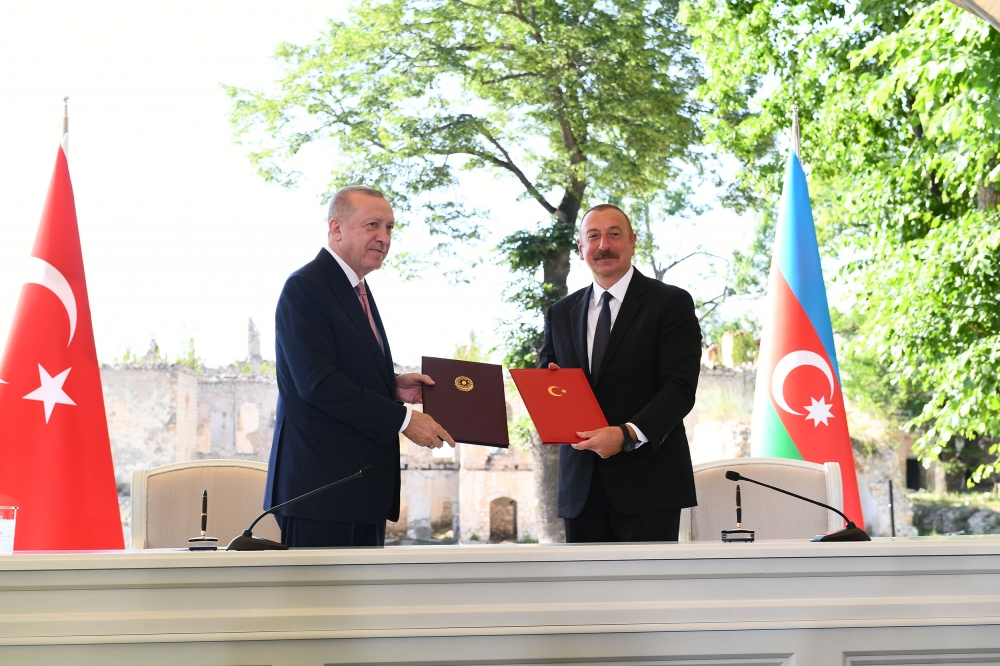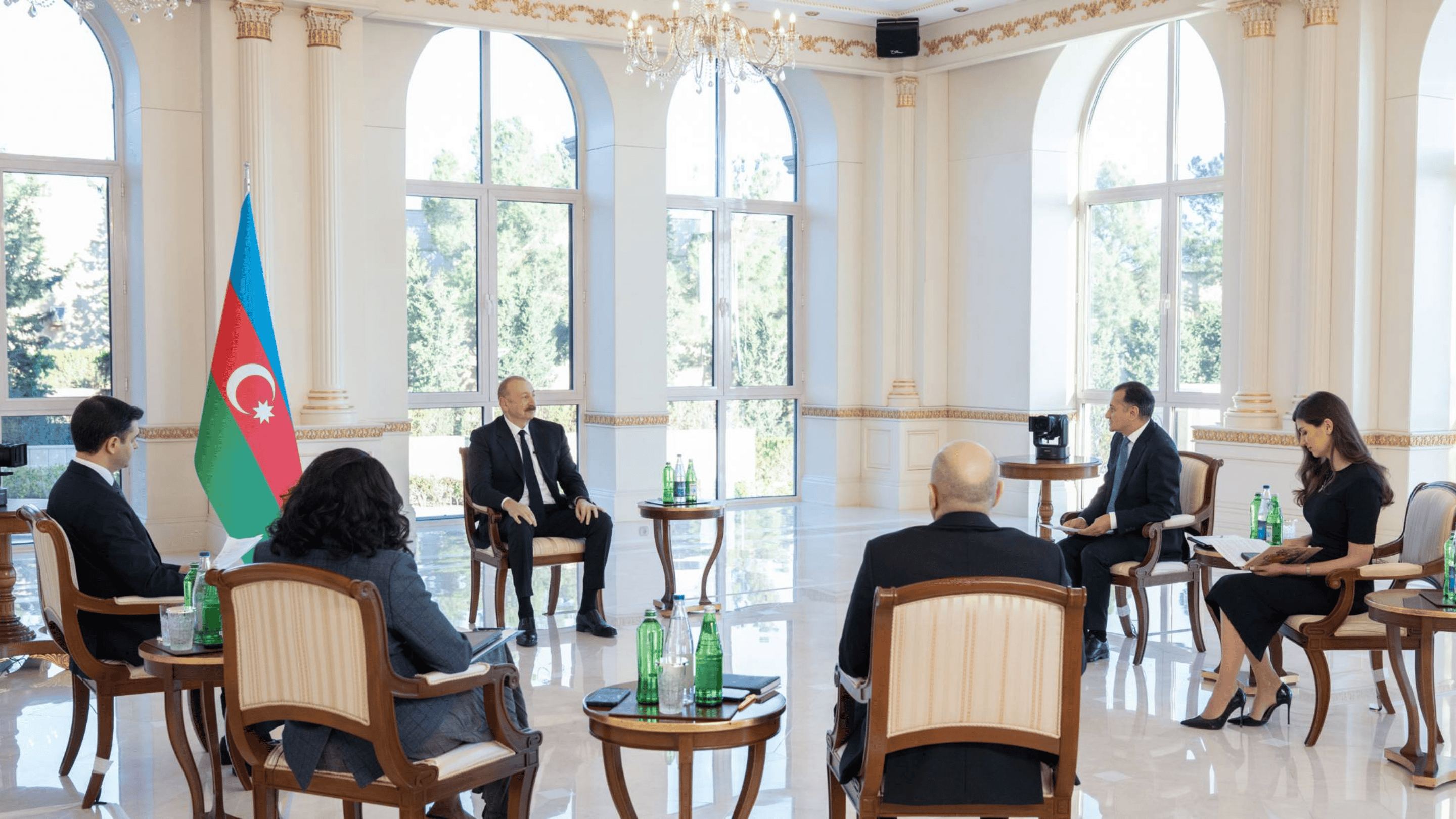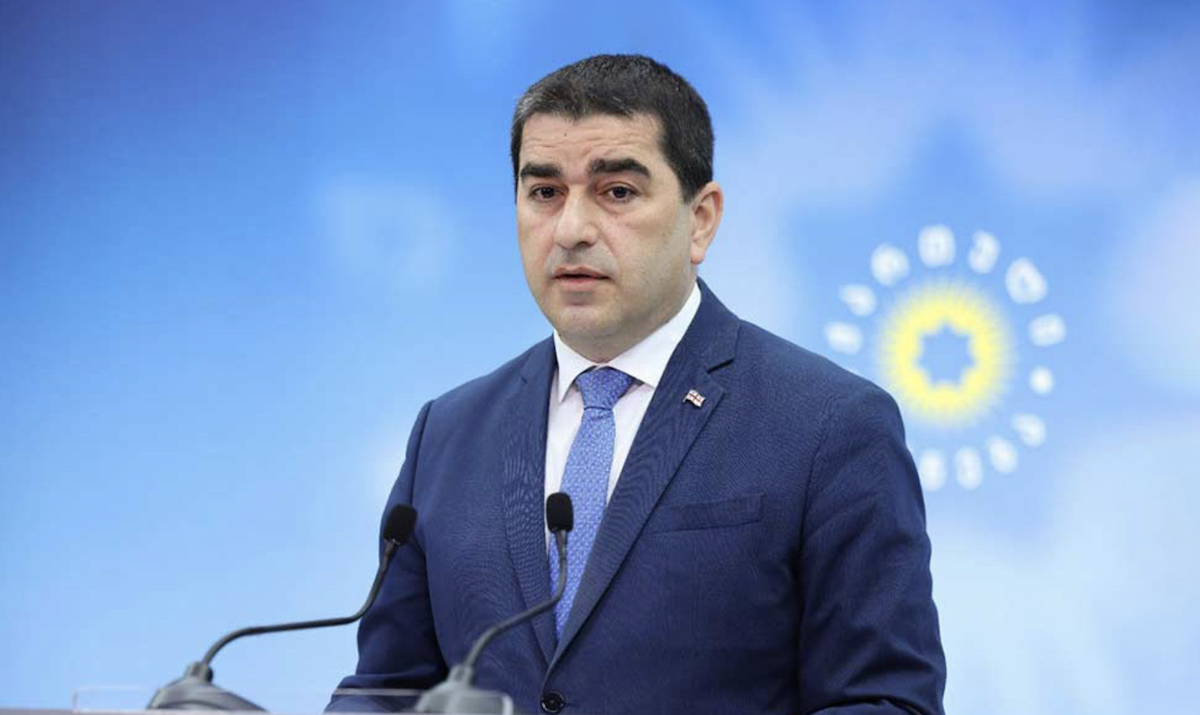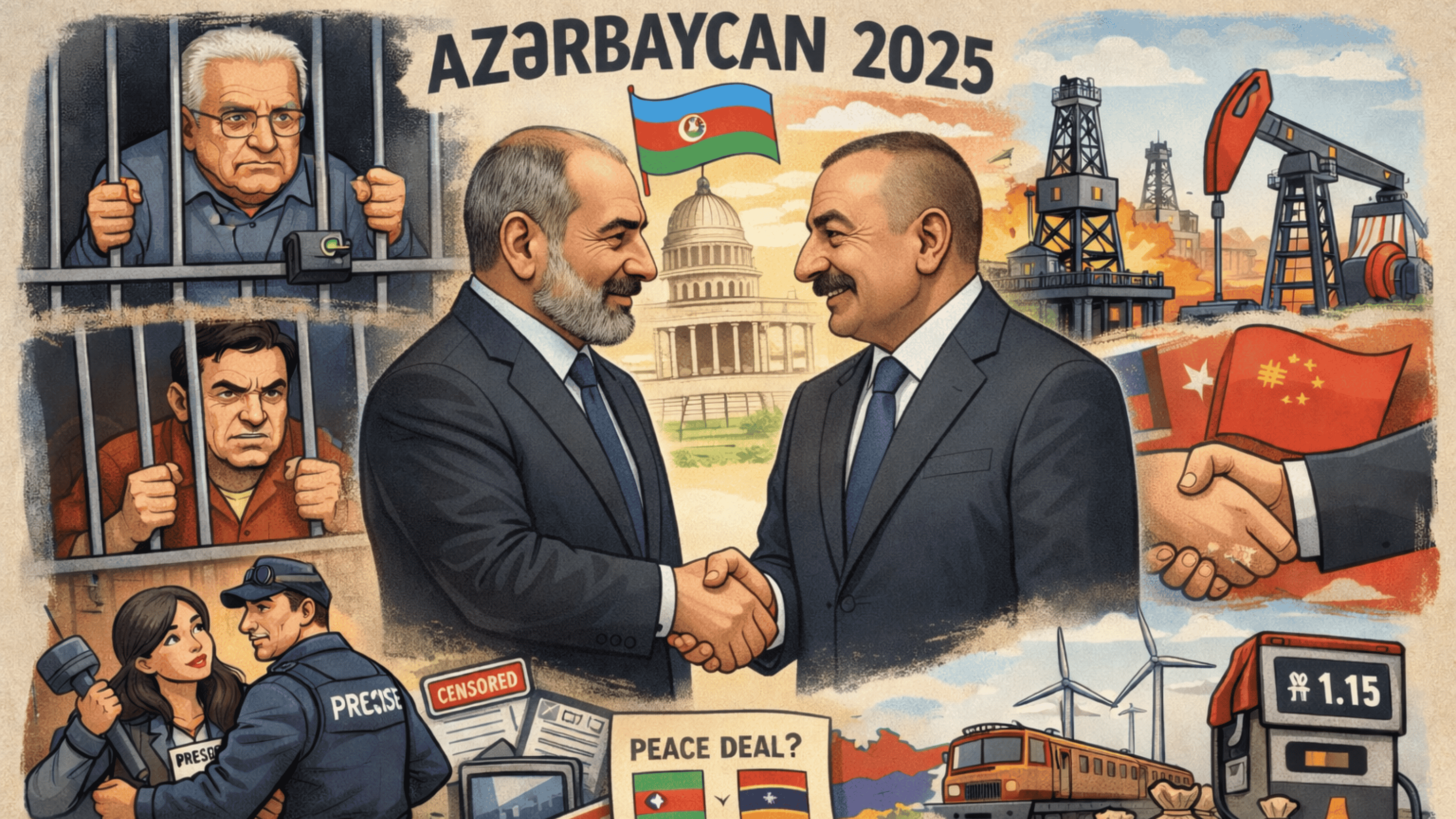Opinion from Baku: 'All Azerbaijan needs to do is stay out of it and wait'
Azerbaijan and US-Armenia deal
On 14 January, a strategic partnership agreement between Armenia and the United States was signed in Washington. The agreement outlines plans to modernize Armenia’s defense system and provide tools to safeguard its sovereignty.
- Is Iran backing down on ‘Zangezur Corridor’? View from Baku
- Opinion from Baku: What could Russia-Iran’s closer ties mean for South Caucasus?
- Opinion: ‘Ivanishvili adopts Belarusian tactics to control protests’
According to Natig Jafarli, chairman of the Azerbaijani opposition party Republican Alternative (ReAl), the document signed in Washington is not directed against Azerbaijan, and Baku should simply await the consequences of its signing:
“The military-strategic agreement between Azerbaijan and Turkey, the Shusha Declaration, is a strong, stable, and, most importantly, effective security umbrella for our country.
Armenian officials and public opinion leaders made a lot of noise about this agreement, insisting that the document signed in Shusha was specifically aimed against Armenia.”
I have repeatedly, including in interviews broadcast in Armenia, tried to explain that they overestimate their importance. This agreement is not directed against little Armenia. To deal with Armenia, we wouldn’t even need our army—our traffic police would suffice.
The Shusha Declaration was signed to counter ongoing threats to Azerbaijan from the north and south, and to contain Russia and Iran. The Azerbaijan-Turkey strategic alliance is the most significant source of strength and security in the South Caucasus.
There is serious discussion about the strategic partnership agreement signed yesterday between Armenia and the United States. A few points need to be emphasized here:
- The viability of an agreement signed with the Biden administration just before its departure is questionable;
- This agreement is not directed against Azerbaijan, and it is a mistake to view it as such from our side. It is aimed at Russia and Iran. We should simply step back and let Russia and Iran sort out their relations with Armenia. Azerbaijan’s stance is already just and dominant from a legal perspective, as we strive for peace and security in the South Caucasus;
- Armenia hosts Russian military bases, and its political and economic dependence on Russia is at an alarming level. If the Armenia-US agreement angers Russia and Moscow decides to act, our key stance should be complete non-interference—let them handle it themselves.;
- Today, Armenia is one of Russia’s main hubs for circumventing international sanctions. Armenia facilitates the trade of precious stones and gold for Russia and enables the purchase of semiconductors and electronic equipment on international markets. Do the US and the West not see this? Of course they do, but it benefits everyone involved. Will this mechanism be dismantled? I don’t think so. Armenia’s attempt to sit on two chairs will irritate both sides—our role is to wait and observe.
The only country that can guarantee Armenia a safe and prosperous life in the South Caucasus is Turkey. Sooner or later, this reality will become clear to everyone.
Azerbaijan is preparing to sign a strategic partnership agreement with the Trump administration. The announcement has already been made, and it is the right decision.
I maintain my position that the documents on normalizing relations between Azerbaijan and Armenia, and between Turkey and Armenia, will be signed with Trump’s involvement. I have been saying this for more than six months, even when Trump’s chances of becoming president seemed lower than those of other candidates.
This is because there is already a document that is 90% agreed upon, and considering Armenia’s readiness to dissolve the outdated OSCE Minsk Group, it is 95% complete. The first agreements signed to support Trump’s slogan, “I will bring peace to the world,” will be those normalizing relations in our region.
This will further accelerate the process of expelling Russia from the South Caucasus through the joint efforts of Azerbaijan and Turkey.
Therefore, we should approach the Armenia-US agreement signed yesterday with restraint and not claim it is directed against Azerbaijan. We simply need to wait for Russia and Iran’s reactions to this cooperation—without any interference on our part.



















